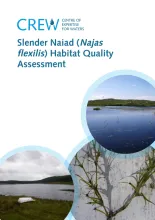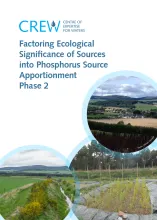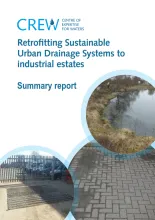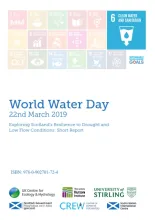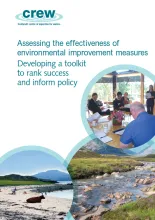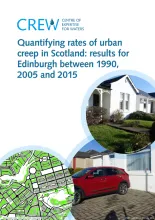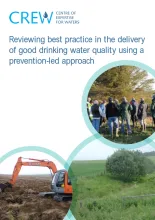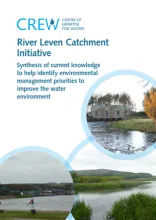Catchment Management
Slender Naiad (Najas flexilis) Habitat Quality Assessment
Slender Naiad (Najas flexilis) is a rare aquatic plant species of European conservation importance.The species is believed to be under increasing threat in its Scottish stronghold. However, the factors that affect the health of N. flexilis populations in Scotland are not fully understood, such as, why does the species disappear, and where and why it fares well in some sites. In addition, more needs to be known about what actions can be taken to ensure that the habitat quality needed to support populations of the plant is either maintained or restored.
Retrofitting Sustainable Urban Drainage Systems to industrial estates
Industrial estates are a well-recognised cause of pollution and Sustainable Urban Drainage Systems (SUDS) have been identified as an important option to address the pollution risk. This study aimed to investigate the potential for retrofitting SUDS on industrial estates to try to reduce pollution of watercourses. The project focused primarily on source control SUDS, or SUDS on an individual property bassis, as well as conveyance types of SUDS.
World Water Day 2019
On World Water Day 2019 the Hydro Nation International Centre and Centre of Expertise for Water (CREW) hosted a conference on "Resilience to Drought and Low Flow Conditions in Scotland", an event supported by the Scottish Government.
Quantifying rates of urban creep in Scotland
Urban creep, the process of converting gardens and other vegetated areas (which help to soak up rain), to built-up surfaces (which are impervious), is an important factor affecting surface water flood risk. This project aimed to answer the question, what are the typical rates of urban creep for selected urban areas in Scotland? The project developed a method to map urban creep and applied it to aerial photography for Edinburgh for 1990, 2005 and 2015. This allowed the first city-wide estimates of urban creep to be produced for Scotland.
Prevention-led approach to the delivery of good drinking water quality
The aim of this project was to collate evidence related to prevention-led approaches within catchments, that was of relevance to Scotland and the benefits that they could bring to safeguarding drinking water supplies. This project sought views, nationally and from other EU (and international) countries, on how or what they have learnt from implementing a prevention-led approach. A project workshop focussed on two key pressures on Scottish drinking water supplies: organics (e.g. Dissolved Organic Carbon) and Taste and odour issues.
